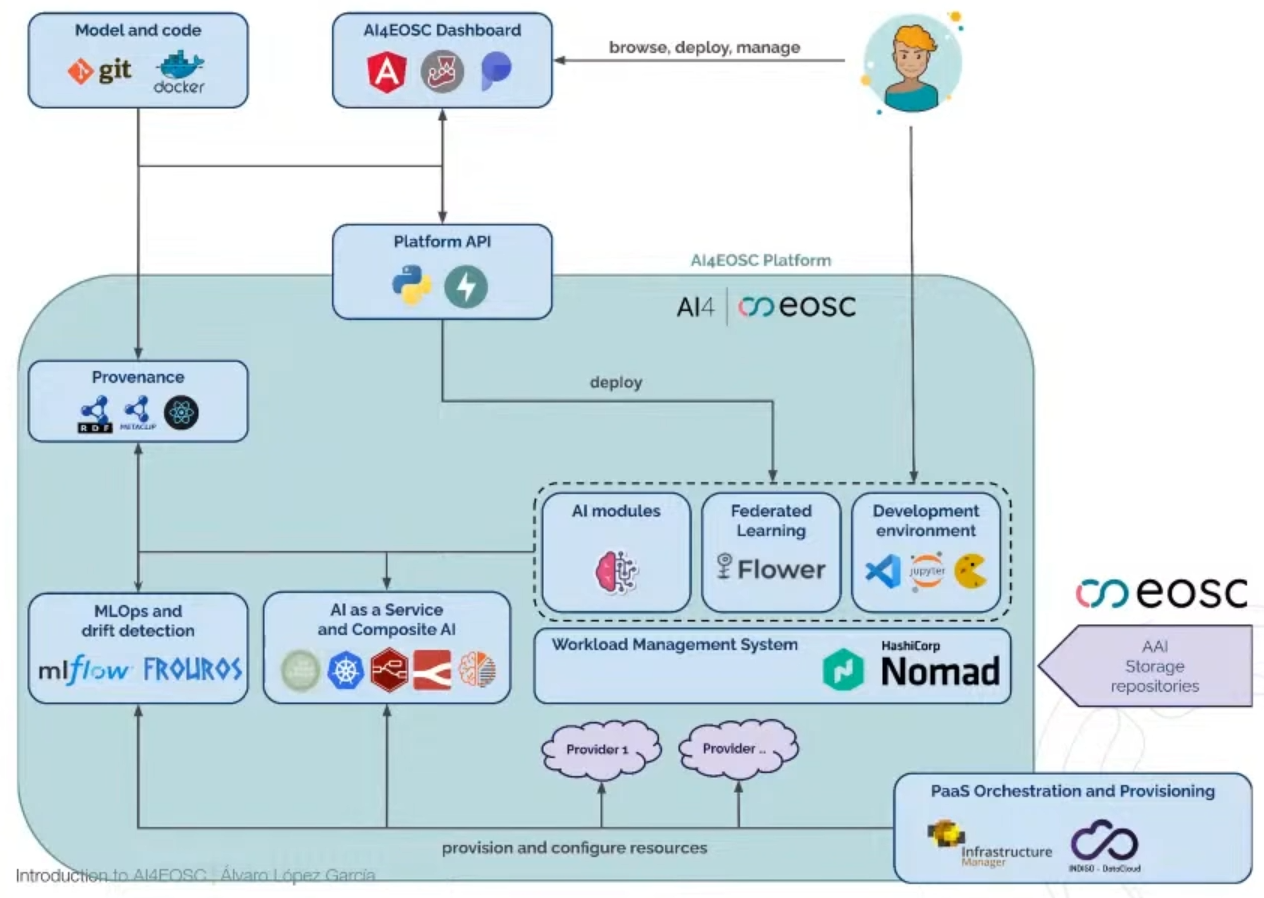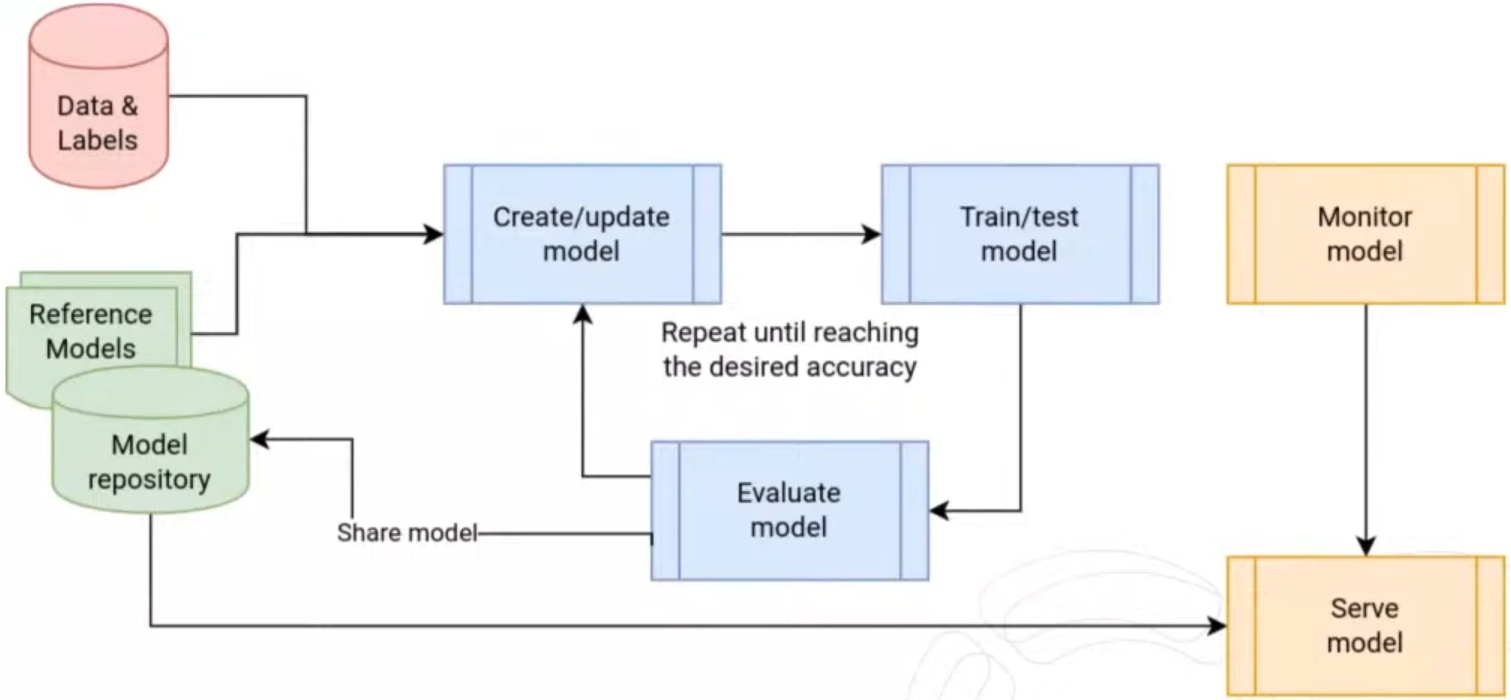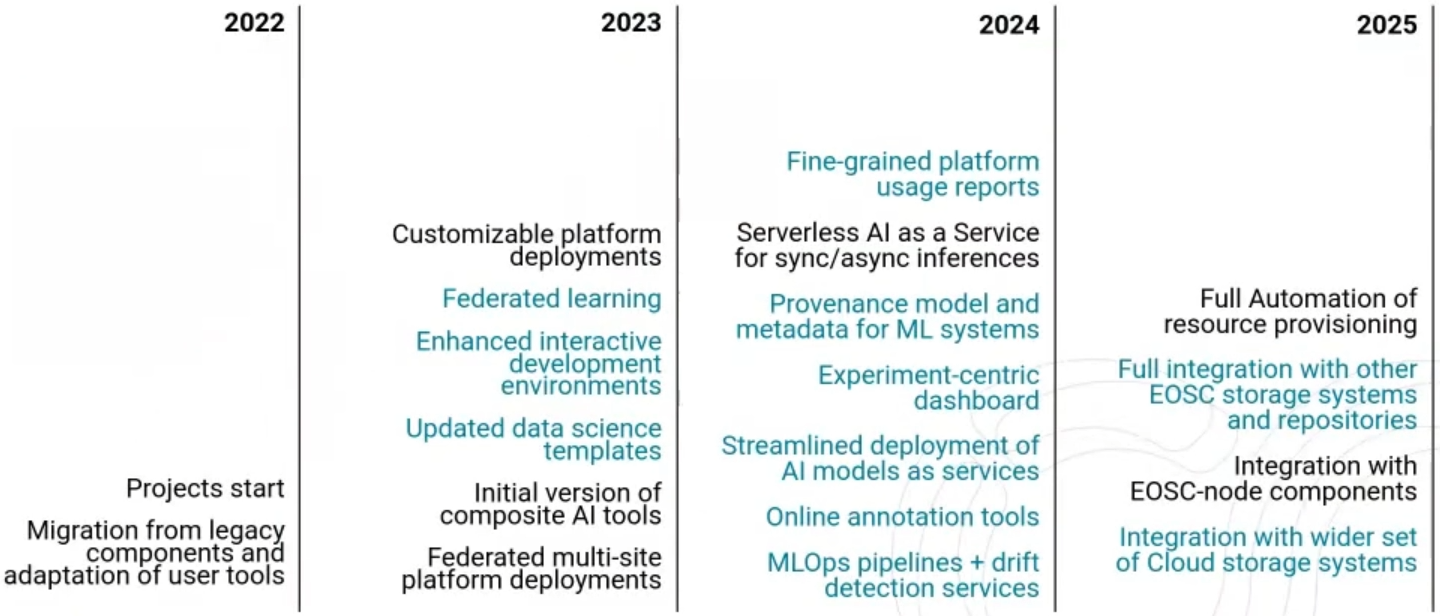Introduction to AI4EOSC: what can you do on the platform? - Dr Álvaro López García (IFCA)
EOSC in a nutshell - The European Open Science Cloud
- What?:
- EOSC aims to develop the “Web of FAIR and Data Services” to enhance access, reproducibility, as well as the digital transformation of science in Europe.
- EOSC is not a cloud provider and doesn’t own the data or services involved. EOSC is an enabler.
- Why?:
- Unlock the full potential of research data to accelerate discoveries and innovation.
- How?:
- Ensure Open Science practice and skills are rewarded.
- Enable the definition of standard, and the development of tools and services to allow researchers to find, access, reuse and combine results.
- Establish a sustainable and federated infrastructure enabling open sharing of scientific results.
- Strategic Research & Innovation Agenda and its Multi-Annual Roadmap: https://eosc.eu/sria-mar
EOSC aims to support researchers.
- Improve scientific research by facilitating access to a large amount of data and research results from diverse fields and institutions.
- Foster innovation by making it easier for researchers to share, collaborate and build on each other’s work.
- Improve the transparency and reproducibility of research by making data and methods more open and accessible.
- Reduce data silos and duplication of effort by encouraging data sharing and reuse.
- To facilitate interdisciplinary research and cross-sector collaboration.
What is AI4EOSC?
- AI4EOSC, a cutting-edge initiative at the intersection of Artificial Intelligence (AI) and the European Open Science Cloud (EOSC) building the AI4EOSC platform and the AI4OS software stack which powers it.
- AI4EOSC provides a user-friendly workbench and toolbox for developing and running AI models, tightly integrated with the EOSC, now available for new users.
- AI4EOSC is not focused on developing AI algorithms, but on helping researchers build their AI models and transforming them into services.
AI4EOSC high level architecture

AI/ML application development lifecycle

Feature timeline

Services for AI/ML development
- Model marketplace and dashboard.
- Dev tools: sandbox and online IDE
- Training: Transparent GPU access
- Training: Federated Learning
- Collaborative and decentralized approach to build ML models (no need to centralize a dataset).
- Management of experiments through platform dashboard.
- Participating clients both within AI4EOSC platform or external (with authentication).
- Deployment
- Providing services for deployment as services:
- Through IM an different cloud (done)
- Through OSCAR in a platform-managed cluster https://inference.cloud.ai4eosc.eu/ (done)
- Through AI4-PAPI in AI4EOSC AI platform resources (coming soon)
- Composite-AI tools (visually build more complex models) (coming soon)
- MLOps
- CI/CD for ML development. deployment, monitoring and operations.
- Monitoring
- Tools to instrument ML models in production (i.e. drift detection).
- Deployment: standalone service
- Deployment: Composite AI
- Deployment: Drift detection